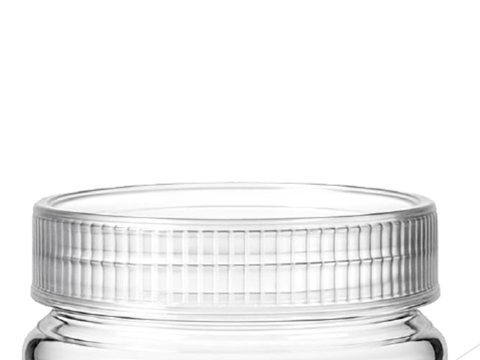
Nviro1’s new, patented PET closure is designed to be recycled with the bottle or jar it is attached to – negating the need to separate components – and to reduce microplastic shedding.
Developed in collaboration with Z-Moulds, the first moulded Nviro1 PET cap was created as a lightweight, 26 mm closure for water bottles. Now the NviroCap prototype is said to withstand 175 psi pressure tests, making it suitable for still and carbonated beverages, foods, edible oils, and detergents.
Due to its 100% PET design, the nviroCap is intended to avoid mixed materials, facilitate closed-loop recycling, and lessen abrasion – a feature bolstered by the cap’s low-friction moulding and sealing system.
It has also undergone ‘advanced’ design and thread innovation for lightweighting purposes, a move hoped to lower both costs and emissions. The cap can apparently be retrofitted into existing bottle systems, including tethered PET caps.
NviroCap is hoped to help brands meet their circular economy targets as global legislation increases its focus on recyclable packaging. It is expected to align with extended producer responsibility schemes, design-for-recycling principles, and the EU’s Packaging and Packaging Waste Regulation.
The solution is protected under US Patent No. 11,591,141 B2, with the United States Patent Office stating that “All previously known caps use significantly different structures.” Patents from other countries are currently pending, and Nviro1 is seeking licensing and manufacturing partnerships with container converters, closure manufacturers, and global brands.
“For decades, PET caps were considered impossible to commercialize due to the hurdles of efficient demoulding, sealing integrity, and sealing torque,” said Mark Goodall, founder and inventor at Nviro1. “We’ve overcome those barriers with a breakthrough design that not only simplifies manufacturing but also empowers brands to deliver truly recyclable PET packaging. That is future-proof: sustainability and legislation-ready.”
In another recent solution, Amcor has unveiled a child-resistant polypropylene closure for household products – claiming to offer weight reduction, recyclability, and optional post-consumer recycled content alongside shelf appeal.
Corvaglia has also unveiled a 100% HDPE closure for aseptic carton packaging, intended to be integrated directly into existing carton packaging filling lines without requiring any technical adjustments. Its mono-material construction is set to streamline its recyclability.
If you liked this story, you might also enjoy:
The ultimate guide to the Packaging and Packaging Waste Regulation in 2025
How are the top brands progressing on packaging sustainability?
Everything you need to know about global packaging sustainability regulation in 2025
The key to increasing the use of reusable packaging in supermarkets













No comments yet